There are many factors that contribute to Washington University’s continued leadership in medical research. One that cannot be overlooked is the extensive array of equipment and services available right on campus.
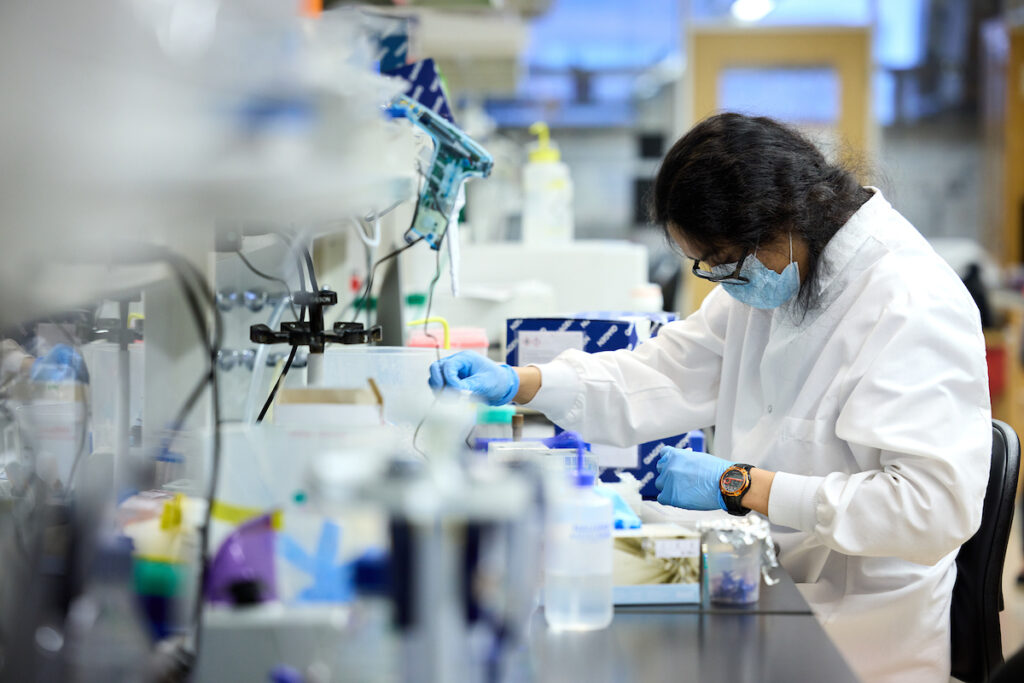
From specialized microscopy to genome editing to animal behavior analysis, there are numerous ways to enhance research efforts, made possible by the University’s unique collection of expertise.
The Department of Genetics operates in three research buildings on campus, ranging from cozy data centers to brand new interdisciplinary wet lab space facilitating research across multiple fields of research. For many investigators, there is no better place to call home than Washington University.

The Couch Biomedical Research Building, or Couch as anyone in Genetics will call it, serves as the Department’s headquarters. Opened in the 2015, the building currently offers around over 18,000 square feet of wet lab space for Genetics researchers, and more than 37,000 square feet including support spaces. Positioned on the fifth and sixth floors, with wrap-around floor-to-ceiling windows, the Genetics team works surrounded by the St. Louis landscape with gorgeous views of the Gateway Arch and the downtown skyline.
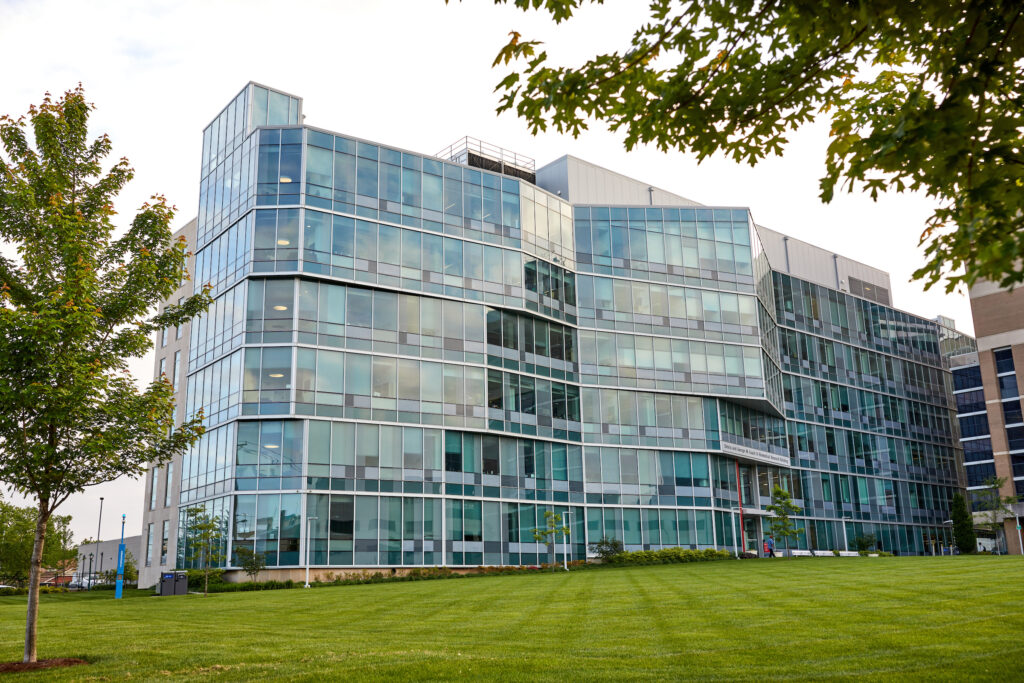
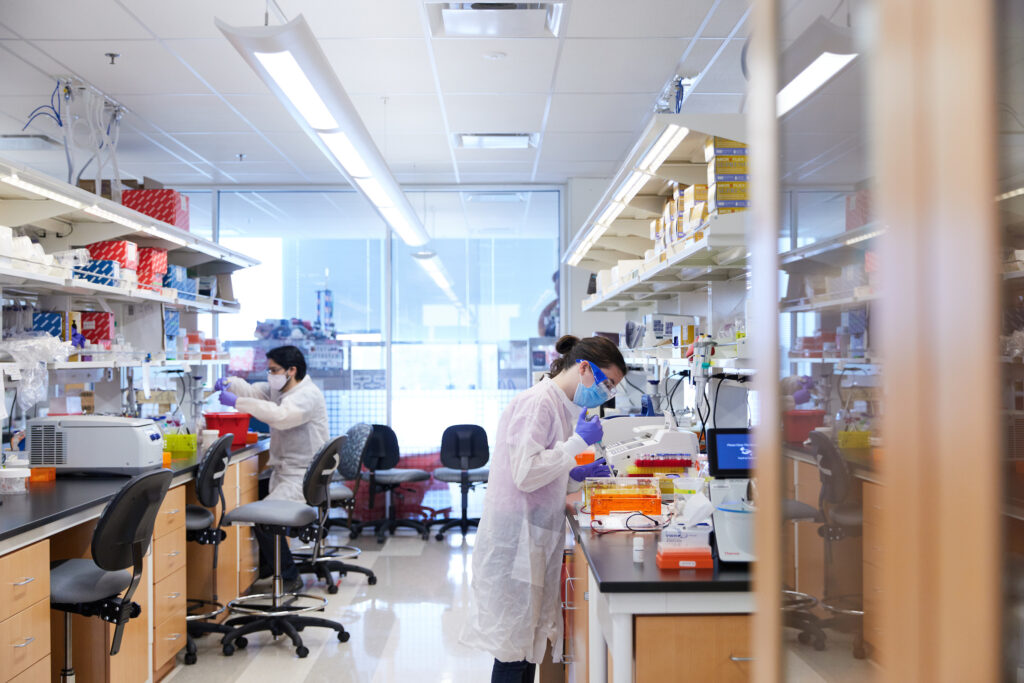
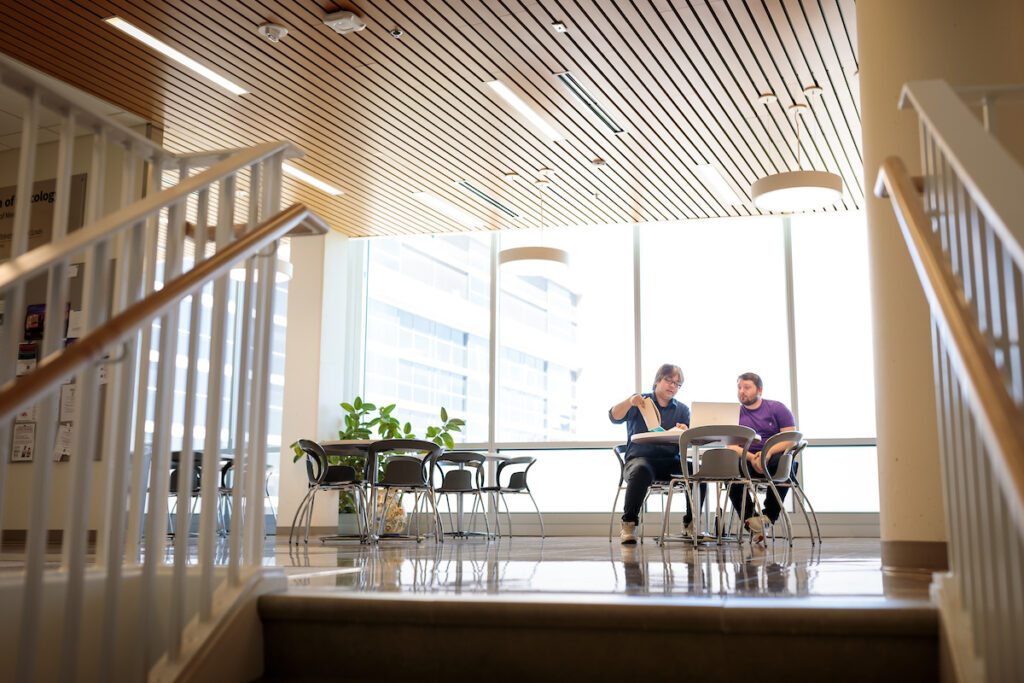
Genetics researchers also take residence in the 4444 Forest Park building, located directly next to the campus’s high-speed computational center, and the Neuroscience Research Building, the most recent addition opening in the fall of 2023 boasting interconnected lab space encouraging collaboration across a wide range of disciplines.
Service Centers
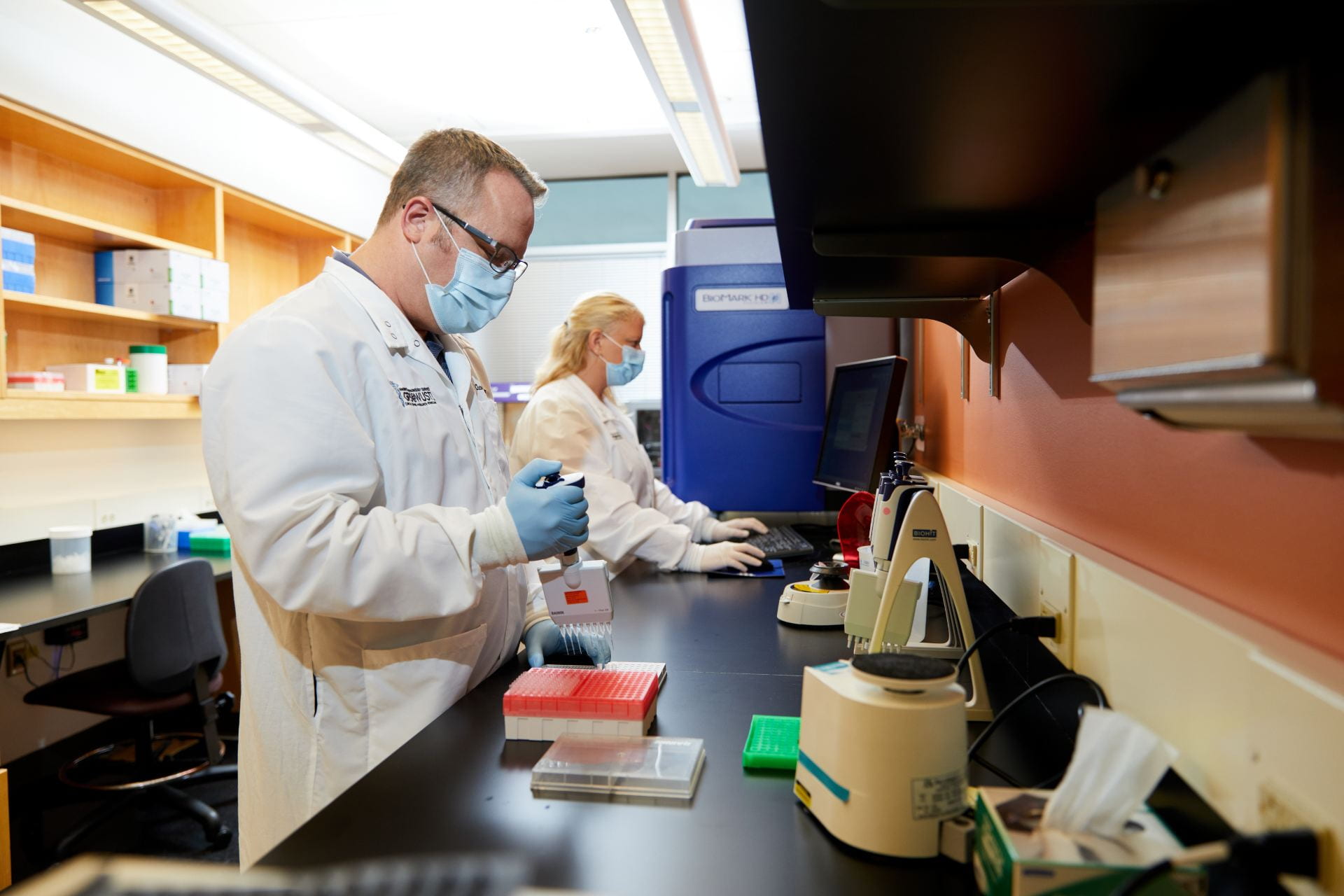
McDonnell Genome Institute
Your one-stop shop for sequencing and omics technology access, the McDonnell Genome Institute is home to sequencing and analysis services (Genome Technology Access Center); genome editing and iPSC line services (Genome Engineering & Stem Cell Center); and proteomics, metabolomics, lipidomics, and imaging mass spectrometry services (Mass Spectrometry Technology Access Center).
Animal Behavior Core
The Animal Behavior Core (ABC) provides behavioral characterization and analysis of rodent models to investigators at Washington University. Services include study consultation, behavior data collection, animal handling, data management, and statistical and graphical analysis.
Center for High Performance Computing
The Center for High Performance Computing (CHPC) offers access to 2,500 computing cores, 19TB of memory, and 43TFLOP/s of computing power, as well as high-speed networking, bulk storage and technical support.
| Tyson Research Center | Writing and Editing Services |
| Tyson Research Center (Tyson) is Washington University’s environmental field station, a 2,000-acre forested landscape only 30 minutes from downtown St. Louis. Tyson provides an ecological resource for faculty, staff and students encouraging interdisciplinary collaboration in research, education and apprenticeships. | The Research Development Office coordinates and connects faculty with a wide variety of grant writing support, including its own free review service for grant proposals. The Writing Center, free to all students, staff & faculty, offers assistance with brainstorming, review and tailoring, for both writing and speaking projects. |
| Institute for School Partnership | Institute for Public Health |
| The Institute for School Partnership (ISP) approaches school transformation through three strategies: research-practice partnerships, capacity development for educators, and support for equitable learning experiences. Washington University researchers can engage ISP in many ways, such as hosting a teacher or a high school student over the summer or simply hosting a book club discussion. | The Institute for Public Health hosts several collaborative centers that harness the strengths of Washington University in St. Louis to address the complex health issues and health disparities facing the St. Louis region and the world. Areas of focus range from aging to human rights to health policy. |
| Zebrafish Facility | Washington University Center for Cellular Imaging |
| Already one of the largest zebrafish research facilities in the world, Washington University’s zebrafish resources continue to expand with new space in the Neuroscience Research Building opened in 2023. With thousands of tanks, the facility provides husbandry services; consultation for experimental design; and support for genetic manipulation, tissue collection, and cryopreservation. | The WU Center for Cellular Imaging (WUCCI) offers world-class cellular imaging resources for light microscopy, electron/ion microscopy, x-ray microscopy, and cryo-EM. Imaging experts offer consultation services to assist with experimental design, equipment training, sample preparation, and data analysis. |